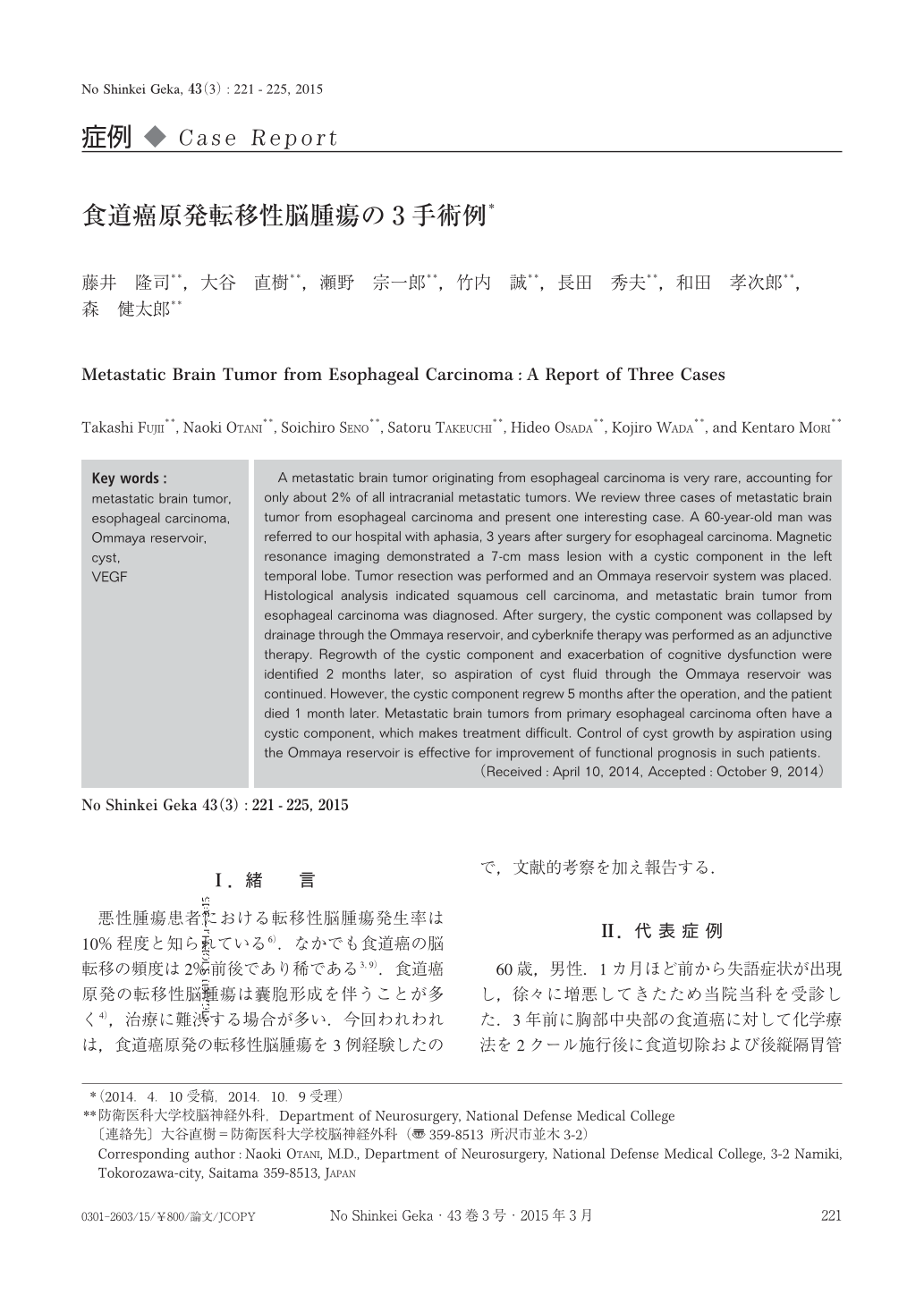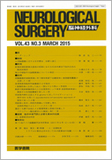Japanese
English
- 有料閲覧
- Abstract 文献概要
- 1ページ目 Look Inside
- 参考文献 Reference
Ⅰ.緒言
悪性腫瘍患者における転移性脳腫瘍発生率は10%程度と知られている6).なかでも食道癌の脳転移の頻度は2%前後であり稀である3,9).食道癌原発の転移性脳腫瘍は囊胞形成を伴うことが多く4),治療に難渋する場合が多い.今回われわれは,食道癌原発の転移性脳腫瘍を3例経験したので,文献的考察を加え報告する.
A metastatic brain tumor originating from esophageal carcinoma is very rare, accounting for only about 2% of all intracranial metastatic tumors. We review three cases of metastatic brain tumor from esophageal carcinoma and present one interesting case. A 60-year-old man was referred to our hospital with aphasia, 3 years after surgery for esophageal carcinoma. Magnetic resonance imaging demonstrated a 7-cm mass lesion with a cystic component in the left temporal lobe. Tumor resection was performed and an Ommaya reservoir system was placed. Histological analysis indicated squamous cell carcinoma, and metastatic brain tumor from esophageal carcinoma was diagnosed. After surgery, the cystic component was collapsed by drainage through the Ommaya reservoir, and cyberknife therapy was performed as an adjunctive therapy. Regrowth of the cystic component and exacerbation of cognitive dysfunction were identified 2 months later, so aspiration of cyst fluid through the Ommaya reservoir was continued. However, the cystic component regrew 5 months after the operation, and the patient died 1 month later. Metastatic brain tumors from primary esophageal carcinoma often have a cystic component, which makes treatment difficult. Control of cyst growth by aspiration using the Ommaya reservoir is effective for improvement of functional prognosis in such patients.

Copyright © 2015, Igaku-Shoin Ltd. All rights reserved.


